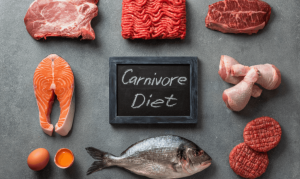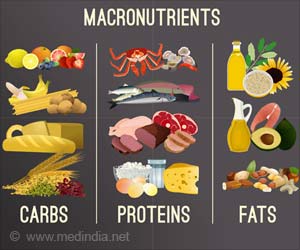The Carnivore Diet, which primarily consists of animal-based foods while excluding plant-based options, presents unique nutritional considerations. Maintaining a well-rounded diet while adhering to its principles is essential to ensure you receive essential macronutrients and micronutrients. In this article, we will discuss the nutritional components of the Carnivore Diet and provide guidance on achieving balance.
The Carnivore Diet, which primarily consists of animal-based foods while excluding plant-based options, presents unique nutritional considerations. Maintaining a well-rounded diet while adhering to its principles is essential to ensure you receive essential macronutrients and micronutrients. In this article, we will discuss the nutritional components of the Carnivore Diet and provide guidance on achieving balance.
1. Macronutrients on the Carnivore Diet
The Carnivore Diet focuses on three primary macronutrients:
- Proteins: Animal-based proteins are abundant on this diet and are essential for muscle maintenance, cell repair, and various physiological functions.
- Fats: Fats provide a concentrated source of energy on the Carnivore Diet. They also support the absorption of fat-soluble vitamins.
- Carbohydrates: The Carnivore Diet is virtually devoid of carbohydrates from plant sources. It is considered a low-carb or zero-carb diet.
https://www.medindia.net/patients/calculators/images/300_250/macronutrient-calculator.jpg
2. Micronutrients on the Carnivore Diet
Ensuring that you receive adequate micronutrients on the Carnivore Diet is essential for your overall health. Here are key micronutrients to consider:
- Vitamins: Focus on vitamins such as vitamin B12, which is primarily found in animal products, and vitamin D, which can be synthesized through sunlight exposure. Consider supplementation if necessary.
- Minerals: Pay attention to essential minerals like iron, zinc, and magnesium, which are present in various animal-based foods. Organ meats like liver are particularly rich sources of many minerals.
- Electrolytes: Maintaining electrolyte balance is crucial. Sodium, potassium, and magnesium are essential electrolytes that can be obtained through foods like beef, fish, and certain dairy products.
- Fiber: While the Carnivore Diet lacks dietary fiber from plant sources, there is no need to be concerned. Fiber is not considered an essential nutrient, and digestive health can be maintained without it on this diet.
3. Achieving Balance on the Carnivore Diet
Balancing macronutrients and micronutrients on the Carnivore Diet can be achieved through the following strategies:
- Variety in Animal-Based Foods: Include a variety of animal products in your diet. Different cuts of meat, types of fish, and organ meats offer a broader range of nutrients.
- Incorporate Organ Meats: Organ meats like liver are nutrient powerhouses, providing essential vitamins and minerals. Consider including them in your diet.
- Consult a Dietitian: A registered dietitian can help you plan a well-rounded Carnivore Diet that meets your specific nutritional needs. They can also provide guidance on supplementation when necessary.
- Sustainable Sourcing: Whenever possible, choose ethically sourced and sustainable animal products. This ensures that you are supporting responsible and humane agricultural practices.
- Stay Hydrated: Adequate hydration is crucial for overall health. Consume water, sparkling water, or herbal teas to stay hydrated.
- Monitor Your Health: Regular health check-ups and blood tests can help ensure that you are meeting your nutritional needs and that your Carnivore Diet is supporting your health.
4. Dietary Considerations
The Carnivore Diet is highly restrictive and may not be suitable for everyone. It is essential to consider dietary preferences, intolerances, and ethical considerations. Some individuals may not tolerate dairy products or specific meats well. Others may have concerns about the environmental impact of a meat-heavy diet.

https://weightdescent.com/wp-content/uploads/2021/09/Carnivore-diet-1024×612.png
Conclusion
The Carnivore Diet is unique in its exclusive focus on animal-based foods. Maintaining balance in macronutrients and micronutrients is crucial to support overall health while adhering to its principles. Consulting with a healthcare professional or registered dietitian is advisable to ensure that your dietary choices align with your individual nutritional needs and health goals.

















Leave a Comment
Your email address will not be published. Required fields are marked with *